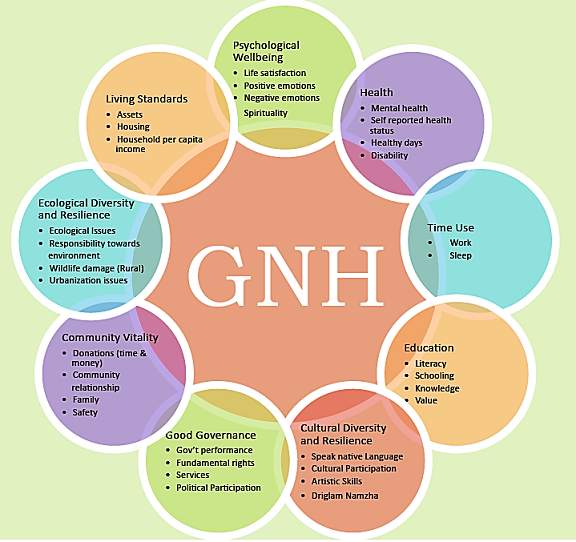What is Gross National Happiness?
What is Gross National Happiness?
The concept of “Gross National Happiness” was introduced by Bhutan’s Dragon King, named Jigme Singye Wangchuk. It uses Buddhist spiritual values as means to building an economy that is in line with Bhutan’s culture. The philosophies of GNH veer away frommaterial development measured by a country’s gross domestic product (GDP). The philosophies are sustainable development, preservation and promotion of cultural values, conservation of the natural environment, and establishment of good governance. Currently, Bhutan is the only country that officially uses GNH wherein a Gross National Happiness Commission is in charge of policy resolutions and distribution of resources.
Although the concept originated from South Asia, it has evolved with the help of many international modern scholars, economists, and politicians. The United Nations has officially adopted this concept as a program in the achievement of global development in July 2011. From a philosophy, GNH became a socioeconomic development framework that gained the attention of many scholars and economists due to its focus on people’s happiness and life satisfaction.
The philosophies of GNH are indeed timely and much-needed in a fast-paced world. However, many people still find it problematic due to its strong emphasis on spiritual and cultural aspects rather than economic development. For this reason, many policy makers and economists struggled to accept GNH because of the subjectivity of “happiness.” In contrast to GDP, GNH is more difficult to express numerically.
To address this challenging aspect of GNH, a GNH Index was made. However, Bhutan has its own model for its GNH Index. The GNH Index adopted by international scholars consists of sevendimensions: economic, environmental, physical, mental, work, social, and political. Some areas that are subjective such as the wellness areas are measured using both quantitative andqualitative data. Each of the seven dimensions is rated from zero to ten, wherein zero means very dissatisfied, five means neutral, and ten means very satisfied.
Additionally, the survey also asks the following questions: What are the top positive things in your life that make you happy? What are the top challenges and causes of stress in your life? What would you advise your government to increase your well-being and happiness? What are the most influential city, state, federal or international projects? How are they negatively or positively impacting your well-being and happiness?
Although the GNH Index is relatively comprehensive, it is still being criticized because of its tendency to be unreliable due to varying responses from people across genders, cultures, and other personal factors. In fact, it has become a controversial avenue for socioeconomic debate because in its simplest form, implications of the GNH unintentionally ask the question: What is more important, money (GDP) or happiness (GNH)?

'Study > English' 카테고리의 다른 글
| Steve Jobs, Apple, and the International Music Industry (0) | 2016.03.14 |
|---|---|
| English Expression Dictionary (0) | 2016.03.14 |
| English Expression Dictionary (0) | 2016.03.11 |
| The Most Influential Musician in Korea (0) | 2016.03.10 |
| English Expression Dictionary (0) | 2016.03.10 |
